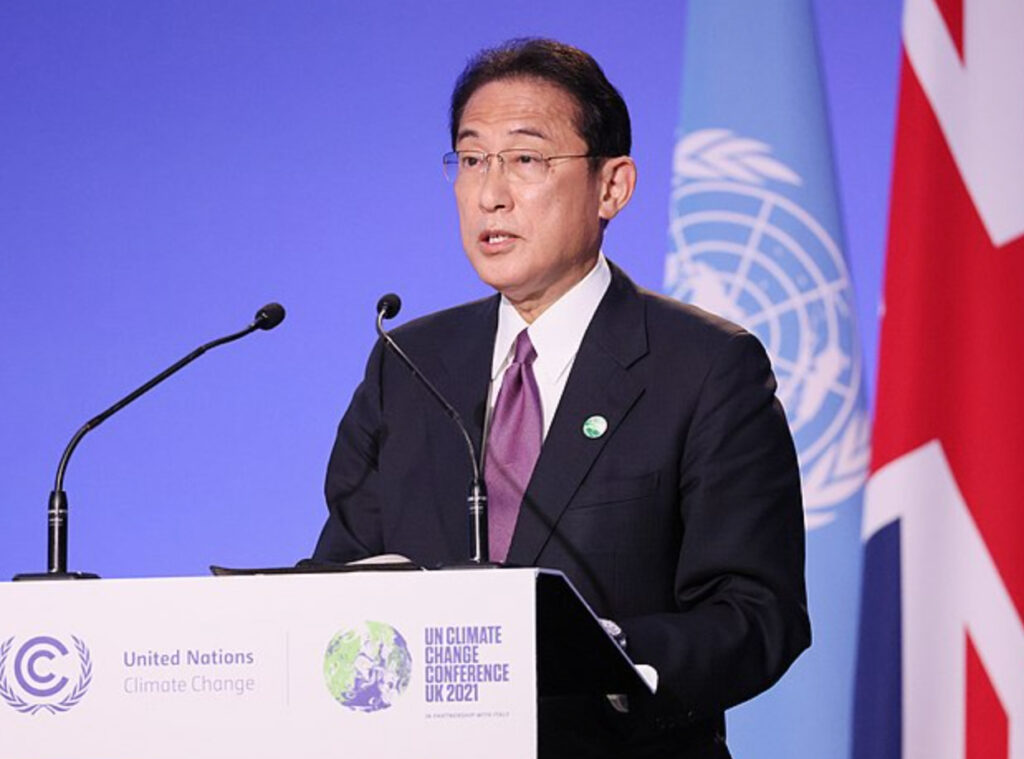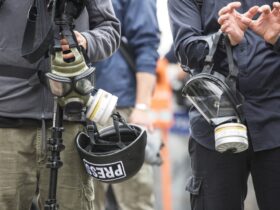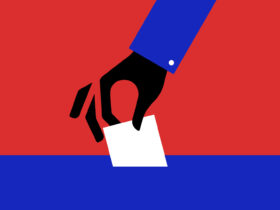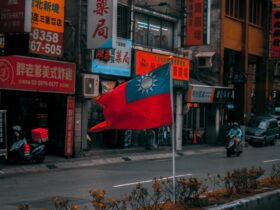LOS ANGELES — As the leader of the Liberal Democratic Party, Kishida replaces Yoshihide Suga, who faced criticism toward the end of his tenure. Suga replaced Shinzo Abe, Japan’s longest serving prime minister in 2020, amid a global pandemic and financial crisis, and immediately upon taking office, Suga’s leadership crumbled under the weight of public unpopularity. Suga’s vision for the Tokyo 2020 Olympics received national backlash and many criticized the former prime minister for neglecting people’s concerns of spiking COVID-19 cases.
Now, with Kishida at the helm of Japan’s global leadership, citizens’ hopes for the newly-elected prime minister are at an all-time high. Japan’s citizens expect the government to focus on its public health and pandemic eradication efforts — ultimately anticipating a drop in COVID-19 cases and increased vaccination rates throughout the country. In Japan, roughly 75% of people are fully vaccinated — and the country lags behind countries like Scotland and South Korea.
Japan’s population also hopes that Kishida will usher in effective reforms and policies that will help nurse Japan’s steadily declining economy back to health. However, despite efforts to connect with the public and set himself apart from his comparatively bureaucratic predecessors, Kishida is considered to be yet another stable and moderate consensus builder.
Kishida, 64, comes from a political background — both his father and grandfather were past members of Japan’s House of Representatives. Kishida was appointed foreign minister of Japan by Abe in 2012 and served in that position until 2017. One of his pivotal achievements as foreign minister includes arranging former U.S. President Barack Obama’s historic 2016 visit to Hiroshima, the city the U.S. atomic bombed at the end of World War II. Kishida also worked to reconcile Japan’s relations with South Korea by compensating for the atrocities committed towards Korean women, or “comfort women,” during the war.
Additionally, Kishida’s international background informs his approach to foreign policy. Growing up, the Prime Minister spent some time living and attending an elementary school in New York City. According to The New York Times, this experience abroad informs his current vision cultivating a close political alliance between the United States and Japan, which have been strategic allies for over six decades.
But Kishida’s first few tests as prime minister will prove challenging. Japan’s current national priorities include tackling the COVID-19 crisis, addressing Japan’s declining birth rates, and revitalizing Japan’s economy.
His predecessor, Abe, attempted to address the COVID-19 spike during his tenure by implementing policies such as the “Go To Travel” campaign, which encourages domestic traveling by funding hotel and tourist business discounts. Abe’s government also provided generous stimulus checks that were distributed to corporations that were eligible applicants that provided futuristic visions for Japan. Though some of these were deemed effective, perhaps the fundamental flaw of the government’s response to the pandemic was its power diffusion.
According to Japan’s Local Government Center, the country placed COVID-19 mitigation responsibility onto the country’s local governors and officials, instead of focusing on a united national response. Each of the 47 prefectures implemented varying degrees of restrictions and inconsistent policies throughout the country, which instigated confusion and hostility toward local officials. For instance, when one prefecture was in “the state of emergency,” citizens who reside there would simply travel to another prefecture that was not in lockdown.
So far, Kishida has addressed the urgent issues of Japan’s COVID-19 response and offered proposed policy changes, such as an increase in testing rates and vaccinations, as well as a focus on equitable wealth distribution and closing the pandemic-induced – income gap. With the national disparities between wages and opportunities steadily increasing, many believe that it is crucial that Kishida implements a policy that supports the Japanese working class. Ideally, this would bring about a structural reform that promotes economic growth and provides the working class with higher wages. Kishida said that he plans to invest money into digital infrastructure in rural areas that would help restore the social safety net and close wage gaps. It is difficult to predict at this point, however, whether or not he is capable of creating the changes that his predecessors have failed to implement over the years.
The other focal point that Kishida has publicly addressed is foreign relations with countries like North Korea, China, and the United States. As a Hiroshima native, Kishida is firmly against nuclear weapons. However, according to the East Asia Forum, he hopes to normalize diplomatic ties with North Korea in the near future.
Additionally, improving relations with China is one of Kishida’s more complicated goals — one that requires caution and nuance due to China’s rising economic and military power. Kishida firmly believes that cooperation with both countries, North Korea and China, despite animosity and stark differences in political values, is critical.
In terms of the United States, both Kishida and U.S. President Joe Biden seek strong Indo-Pacific relations — a partnership that has strengthened due to the emergence of the Quadrilateral Security Dialogue. The Quad is a diplomatic network among Japan, the U.S, India, and Australia that are committed to supporting a cooperative region that helps foster a liberal trading system and a strong democratic alliance. Article 5 of the bilateral security treaty states that the obligation of the United States is to defend Japan — this also applies to the highly contested islands known as the Senkaku, Diaoyudao or Diaoyutai Islands.
Kishida states that the Japan-U.S alliance is critical in shaping national policies because it “serves as the foundation of peace and prosperity in the Indo-Pacific region and the entire world.” Ultimately, it is in both countries’ interests to maintain strong relations and ensure mutual security and economic benefits.
It is important to note, though, that like many politicians throughout history, leadership and vision do not necessarily equate to immediate action or change.
Abe is a prime example of this disparity. Despite his contributions to restoring stability throughout the country, the majority of his “Abenomics” vision was poorly implemented, according to The Guardian, and many of his economic goals to this day remain unachieved. The three “arrows” of Abenomics were envisioned to 1) implement monetary easing in order to achieve 2% inflation in the economy, 2) create a flexible fiscal policy that would alter the rates of government spending levels and tax rates while monitoring the economy and 3) use private sectors to promote economic growth holistically.
While these all seemed ideal, the fundamental problem was the successful implementation of these policies due to Japan’s rigid rules and checks. Additionally, some of Abe’s visions failed due to the corporations’ and industry owners’ inability to change their policies because of their devotion toward deeply-embedded old-school beliefs. This is a case in how Japanese politics often prioritize stability, and thus, fails to implement any drastic changes to the traditional “way things are done.”
So, is Kishida truly the leader that Japan needs with the current state of the nation?
Both the Tokyo Olympics and the government’s response to COVID-19 have contributed to Japan’s current economic decline and the decrease in citizens’ trust in and deference to the government. Despite growing animosity towards Kishida’s party, the LDP, the fact is that there is no alternative party that can counter the dominance they have in Japanese politics. Yet, despite the fact that Japan’s governing party seems to be steadily losing its support, it continues to stay in power due to a lack of opposition.
There will potentially come a time when “playing it safe” will no longer be the safest option for the nation. Looking at how former leaders erred in leading Japan and previous governments’ inability to evolve, it is crucial that Kishida is able to learn from the past and adapt to the changes and challenges that lie ahead.







